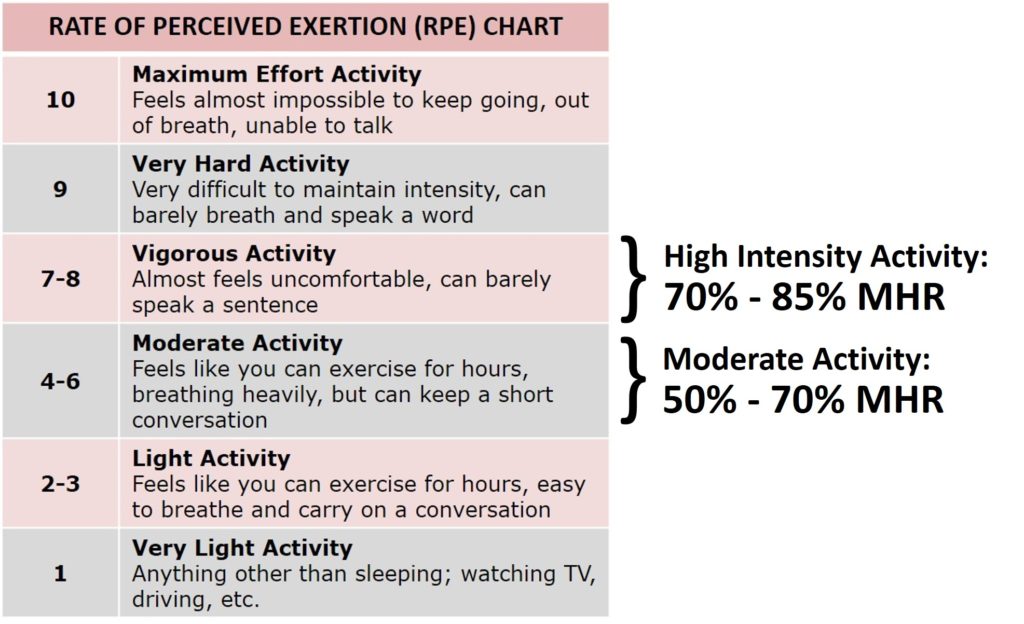Tip #6: How intensely should you exercise?
Obesity levels for the senior population in the U.S. are now over 40 percent. If you are a former high school/college/post-college athlete who has been on the couch for the past 20-30+ years, this series of twice-monthly tips will show you how to resume an active lifestyle.
Fortunately, numerous studies have confirmed that it is never too late to resume an active lifestyle. I will show you how to reduce your fitness age, a more reliable indicator of longevity than your BMI, by 20+ years over the next 12-24 months. You will definitely be healthier, happier, and an inspiration for your family, friends, and colleagues. What’s better than that?
How intensely should you exercise?
Great advice if you know the difference between “moderate-intensity” and “vigorous-intensity activity.” The following chart gives you two methods to judge whether or not your physical activity is intense enough.
The first method, Rate of Perceived Exertion (RPE), is a subjective measure based on your ease or difficulty speaking while exercising. The second method, percentage of maximum heart rate (MHR), requires a heart rate monitor, like a bike computer or a sports watch with a heart rate function, and a calculation of your maximum heart rate and zones with a VO2max test, which is only recommended if you intend to compete at some point in the future.
Whatever method you use, the common denominator is that you should be sweating during your workout. Otherwise, you’re wasting your time and kidding yourself about your fitness if all your workouts are “light” or “very light” intensity.

What have I learned?
When racing, my lactate threshold, the maximal effort or intensity that an athlete can maintain for an extended period of time with little or no increase in lactate in the blood, has been confirmed at roughly 130 bpm, or around 90 percent of my MHR. Calculating the rest of my heart rate zones is simply a matter of a percentage of MHR. When I train, I know exactly where my heart rate needs to be to achieve a workout at a recovery intensity, moderate intensity, or high intensity, depending on that week’s plan.
Any questions?
Tip #7 Preview: How do you reduce your fitness age by 20+ years?
